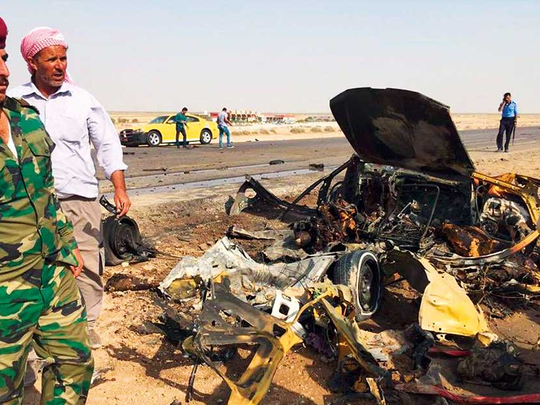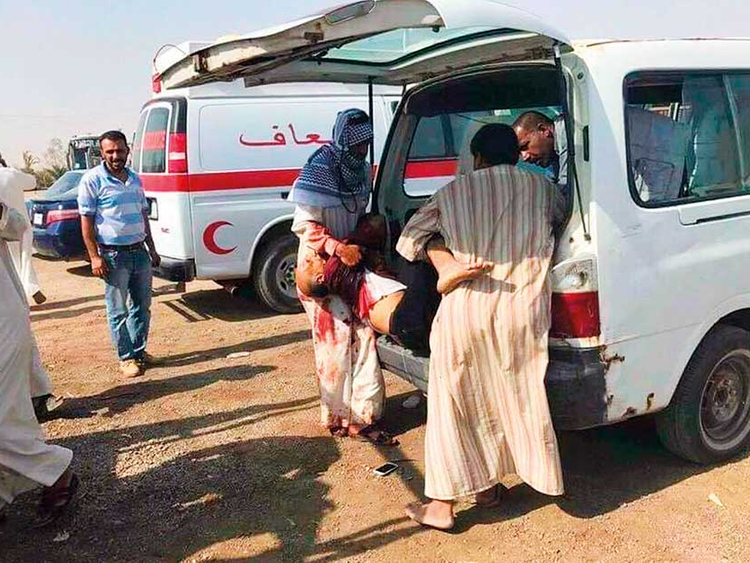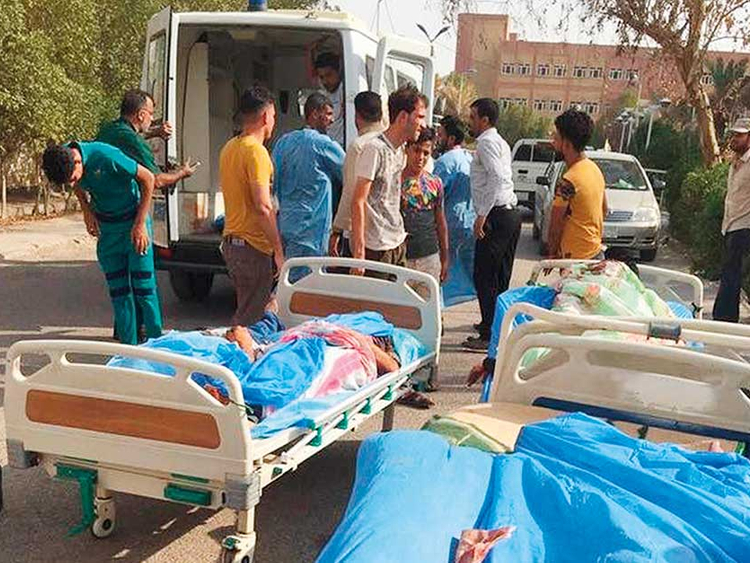
Arbil: A coordinated attack on a restaurant and a security checkpoint in southern Iraq killed at least 80 people Thursday, police and health officials said, in a rare spasm of violence targeting a route used by Shiite pilgrims visiting their holiest shrines.
Gunmen wearing military uniforms stormed into a restaurant in Nasiriyah, about 200 miles south of Baghdad, around lunch time.
They opened fire on the patrons there, who included Iranian and Iraqi pilgrims traveling north toward the shrines in Karbala and Najaf, the head of the provincial health department said.
Moments later, a car bomb exploded at a police checkpoint near the restaurant, which sits along Highway 1, the road that connects Baghdad with Dhi Qar province, where the attack took place.
An additional 80 people were injured in the two attacks, which Daesh later claimed in a statement released online by its propaganda arm.
The group has been steadily losing territory, most recently Mosul, its largest stronghold, and the smaller city of Tal Afar, but it has shown an ability to still launch insurgent-style raids in areas it once held.
Iraqi officials have voiced fears the group would step up its attacks on civilians as its grip on territory recedes.
Because the south is home to the Iraq’s most revered Shiite shrines, it is among the best-secured areas of the country and has rarely been the target of large-scale attacks. At the same time, though, many security forces assigned to the south have been drawn into battles against Daesh in the north and west, leaving some holes that terrorists have exploited.
Currently, Iraqi forces backed by tribal fighters are manoeuvring into position in the western desert bordering Syria to launch an offensive against one of the last bastions of the Daesh.
After driving Daesh out of Nineveh province earlier this year, the Iraqi government set its eyes on Hawija, north of Baghdad, as well as the towns of Al Qaim, Rawa and Anna in the western desert.
On Tuesday an AFP correspondent who toured the region saw several artillery units positioning themselves around Rawa and Anna, around 100 kilometres from the border with Syria.
Moving in clouds of dust, gunners set up their equipment in the rugged terrain and dug trenches before test-firing mortar rounds.
Further in the distance the infantry deployed, backed by tribal fighters.
Shaikh Qatari Kahlan, who commands one of the tribal units, said his forces were ready for battle.
“All the tribes wanted to take part to liberate the region and fight against Daesh,” he told AFP.
“Tribe members inside Anna and Rawa are giving us information and assuring us that the battle will be ferocious but quick,” he added, pointing an automatic rifle at the horizon.
Al Qaim lies closer to the Syria border and just across from Deir Al Zor province where Daesh militants are facing separate offensives from US-led Arab-Kurdish forces and government troops backed by Russia.
The Iraqi general said the battle for the three towns could begin after an expected assault on Hawija or simultaneously.














